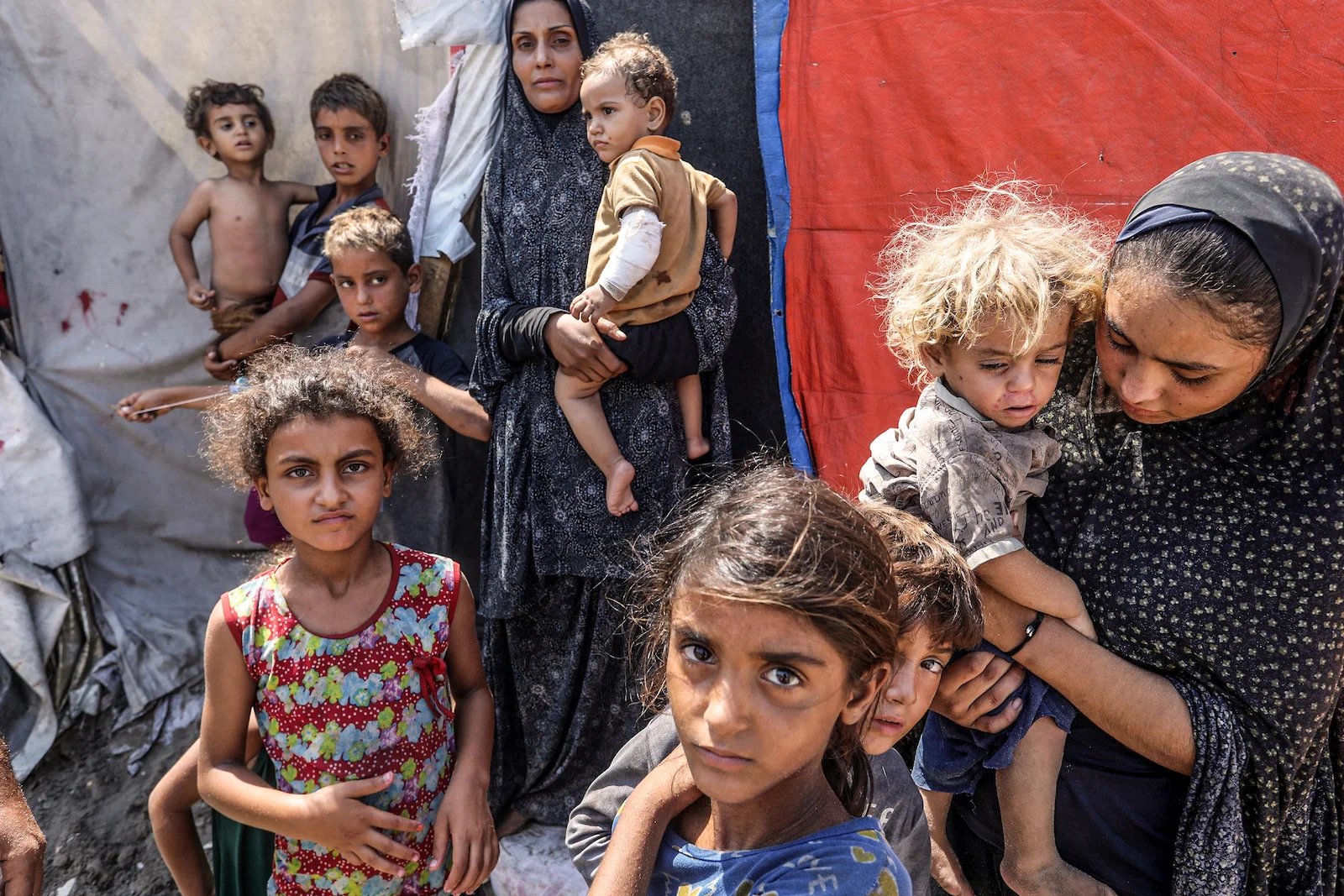
Echoes of Empire: From Columbus to Gaza’s Stateless Struggle
Though last week marked a holiday still officially known as Columbus Day, it has increasingly been identified as Indigenous Peoples’ Day, commemorating those who had inhabited the Americas for millennia before Europeans arrived and claimed the land upon which they built our nation.
The debate rages: can we judge 15th-century Columbus’s brutality by 21st-century standards? Confronting his legacy piques our emotions because it leads us to ponder the extent to which our society is founded upon vice as well as virtue. Extrapolate the arc of our history even further, and we face an eternal question: does might make right?
Columbus paved the way for centuries of journeys undertaken by Europeans to shores, where their superior technology and organization ultimately enabled them to take whatever territories they desired. These lands, however, contained Indigenous People, leaving colonizers with the crudest of calculi: kill the natives, chase them away, or eventually integrate them. However, much blood was spilled, and however much injustice was visited upon the Indigenous People, at a minimum, they have now become citizens of the political entities that they historically inhabited.
Statelessness, globally, has largely been resolved. One glaring exception: the last chronological case of conflict between settlers and an Indigenous population: the State of Israel. Upon the fall of the Ottoman Empire in the early 20th century, Jewish migration to British-mandated Palestine increased dramatically, and as with other cases of settlement in lands containing Indigenous People, violence predictably erupted.
The European Jewish settlers who fought to found the State of Israel in 1948 managed to kill or expel enough of the natives to found a state with a Jewish majority. Citizenship was tendered to the Indigenous People who did remain, commonly known as “Israeli Arabs,” who now comprise 21% of the country’s population. Nineteen years after its founding, Israel fought another war, again defeating the armies of the surrounding countries and conquering Gaza and the West Bank in the process. Unlike in 1948, however, in 1967, the population remained in place. Herein lies Israel’s oft-overlooked Indigenous Peoples’ conundrum.
Nearly six decades later, the lack of resolution of statelessness for the inhabitants of those territories continues to have brutal consequences, most notably the assault from Gaza on October 7, 2023, that killed more Jews in any one day since the Holocaust. We tend to explain the motive behind the attack in geopolitical terms: Hamas acted at the behest of Iran, the raid intended to scuttle normalization with Saudi Arabia, etc. However valid these arguments may be, they obscure an empirical historical truth: until statelessness is resolved, violence will play an unfortunately prominent role in the struggle of Indigenous People.
Israel faces a fierce demographic battle, and while it has killed over 43,000 Gazans in retaliation for October 7, at least that many babies were born since. The even bigger story is that the border between Gaza and Egypt has remained sealed. On one hand, Israel, facing a genocide charge at the International Court of Justice, simply cannot kill enough Palestinians. On the other hand, it also cannot push them anywhere else. Ironically, by virtue of its 1967 victory, it is now stuck with millions of people that it doesn’t want inhabiting land that it very much does.
As burgeoning Jewish settlements have cast doubt on the viability of relinquishing territory to facilitate the oft-cited two-state solution, Israel has few options to maintain a demographic advantage in a “Jewish State” that now has approximate parity of population between Jews and non-Jews (the two million Israeli Arabs plus another five-plus million stateless inhabitants of Gaza and the West Bank.)
This quandary brings us back to the bigger questions surrounding the legacy of Columbus. Critics of colonialism find Israel’s demographic quagmire a useful stone on which to grind their historical axes, as it is very bloody and visible today, compared to Columbus, who Tony Soprano once famously said: “was so long ago he might as well have been a movie.” Those who gleefully crow that our society is an evil one built upon vice still cannot sufficiently dole out self-punishment for the brutality visited upon Indigenous People by Columbus or those who followed him centuries ago. They can, however, rebuke Israel for its treatment of stateless Indigenous People today – hence the genocide case, the student protests, etc.
If this movement follows the trajectory of anti-Vietnam War protests two generations ago, Americans will eventually conclude that might does not make right and tire of funding an Israeli war machine. In the meantime, it seems unlikely that Israel would have the political cover to gin it up to the Holocaust-level proportions needed to secure a demographic advantage. A bloody impasse, devoid of grace, nonetheless remains.
As we reflect on the achievements of Columbus and also ponder the plight of Indigenous People over the centuries, we have the luxury of debating vice and virtue in our own history and arguing about the name of a holiday. Concerning the Indigenous People remaining stateless today, we have an obligation to help clear a path to reconciliation and equality. With respect to Israel’s population, neither seven million Jews, nor seven million non-Jews, are going anywhere. All of them deserve to belong to a sustainable political entity in peace and security, and so far, we have failed them.
